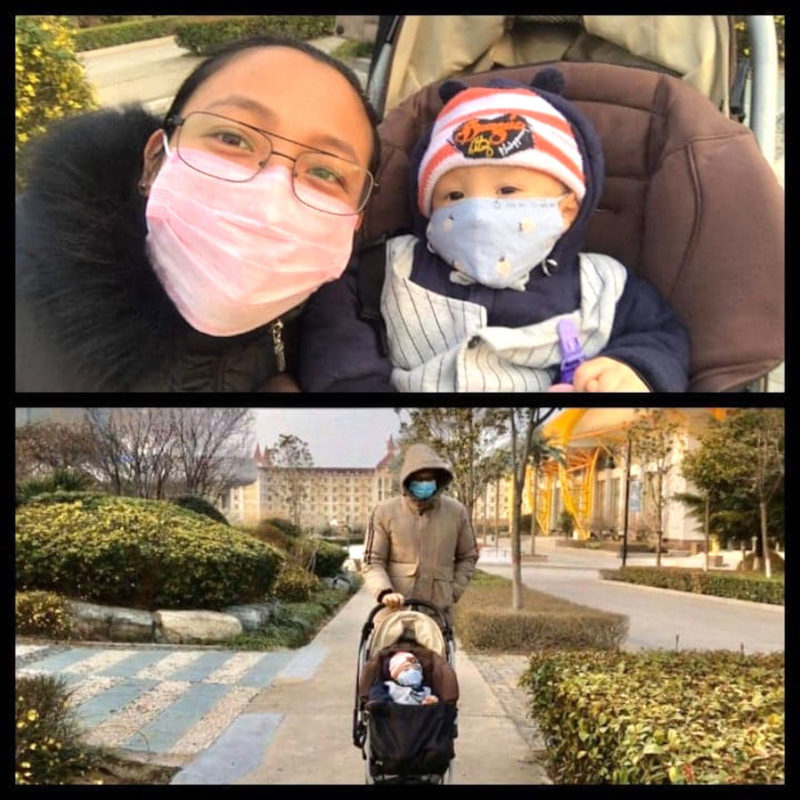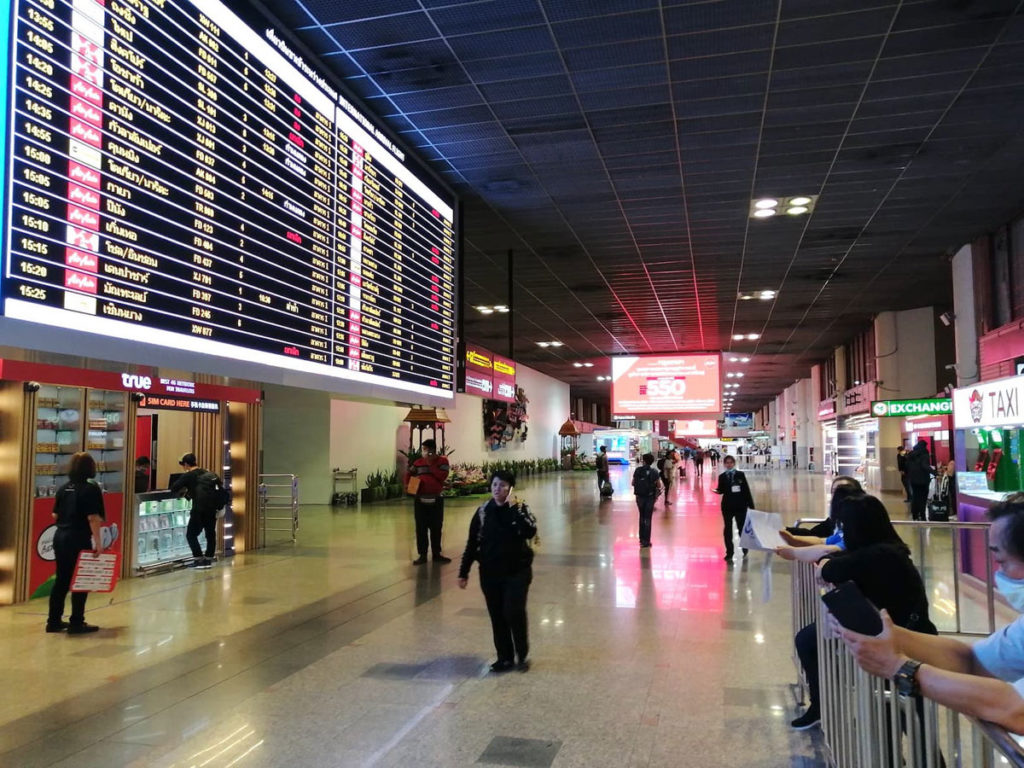How COVID-19 is changing our lives

The Riggins family are confined to campus premises in Henan, China. CONTRIBUTED
I was singing “Happy Birthday” while washing my hands. The song should be long enough to kill any pathogen including SARS-CoV-2 on my skin. SARS-CoV-2 causes COVID-19, according to the US Centers for Disease Control. I was in a public restroom at Don Mueang International Airport in Bangkok. There was no queue.
The usually congested airport was eerily silent, like those apocalyptic movies in the ‘90s where places were deserted due to some super-virus that wiped away humankind. The tour operators shouting to the throngs of Chinese visitors were not around. Some tour guides were waiting for the arrival of their guests, but their signs had visibly no Chinese names.As I left the airport, I wore my mask. I was more worried of the air quality in Bangkok that has reached an alarming level of particulate matter at 2.5.
First line of defense: masks
In Henan Province, China, the Filipino American family of James and Goodwill Riggins and their 10-month-old son is still confined in a campus. As prescribed by the Chinese government, people must wear masks when going out, even if to do the laundry or get food from the cafeteria.
Some schools in China have set up online classes. The Chinese Ministry of Education initially suggested that schools may possibly not open until sometime in May. Some schools are also suggesting July. But no one can be sure how long it will last.

Nearly empty arrival area at Don Mueang International airport on March 7. JOMA CORDOVA
“We were quarantined on orders of the school. The virus hit just as two events were taking place: Winter Break and Chinese Spring Festival. This meant that most foreigners had gone home or traveled. Some remained at the school. School authorities wanted to safeguard the spread of the virus from more people, especially foreigners who were still on campus during break,” James explains.
Russel Rodrigo, Emerald Jorda and Junwerlo Ng are Filipino lecturers in Bangkok. They brave the daily commute from their homes to their universities. Like the rest of the commuters all are wearing masks.
Ng bought his masks in the Philippines, while Rodrigo and Jorda ordered online. Jongkasem Julakham, a Thai executive, mentions that the mere tip of a store selling masks and sanitizers excites her. These products are mostly out-of-stock in stores and pharmacies in Bangkok.
Thailand’s Internal Trade Department directives limits face mask purchases to 10 pieces per person, considered enough for 15 days. The department also warns hoarders or price fixers of jail time and fines under the Price of Goods and Services Act of 1999.
However, the World Health Organization (WHO) on March 3, has warned that due to panic buying of personal protective equipment (PPE), like gloves and medical masks, health workers are at risk from the coronavirus and other infectious diseases.
Avoiding travels and crowded places
COVID-19 also restricts the movements of the people all over the world. If you traveled, particularly to countries with high cases of COVID-19, self-quarantine or government quarantine is a must.
Some foreign teachers remaining in China, like the Rigginses, or had gone home, are still teaching online and are still paid.
But some schools Bangkok will not pay for teachers who are quarantined and must miss days of work.
“Many schools are discouraging their personnel from traveling abroad. They are even told that if they do travel they won’t have their job when they come back. If quarantined, there won’t be any pay for the days quarantined,” Marvin Hechanova, a teacher in Bangkok shares.
Sonia Soosot Zerrudo works in a multinational company based in Bangkok. Due to COVID-19, even her work-related trips have been canceled. Jongkasem also says that many of her business meetings in Bangkok were also postponed.
Goodwill Riggins says that if they walk around in Henan, it is within the campus premises, but not in groups of four or more people.
Disinfecting, washing, and drying hands
There is no shortage of toilet papers in Thailand yet. We use soap and water in cleaning our hands and body parts. But to be sure that we kill the remaining germs, we use alcohol or hand sanitizer. This practice is in accordance with the WHO basic protective measures not only against the COVID-19, but also common illnesses.
In an article published by Harvard Medical School in 2007, using soap and water does not kill germs, but it removes them from the hands. Drying your hands is also important because wet hands spread more germs than dry hands.
Relationships in times of COVID-19
In spite of the WHO preventive measures that we follow, our personal relationships suffer. Our habits of kissing, hugging and shaking hands with friends are no longer practiced for fear of getting infected or transmitting infection.
Joe Angeles is married to a Thai woman. They couple has an 11-month-old daughter Lynin. Both are working in Bangkok. The wife works in a bank, while Joe is a university lecturer.
“We will take our daughter to an isolated village 700 kilometers away from Bangkok. This is a tough decision, but it is the best way to avoid the virus. It is going to be very difficult for us because we cannot be with her every day,” Joe says.
While in quarantine, the Rigginses keep themselves occupied by exercising and talking to friends and families via social media. They are also aware that racial tension has intensified particularly in America and Europe.
“What will help us overcome this growing situation is not hate, which only divides; what we need at this point is to begin going beyond our historically taught racial biases and hate. The coronavirus has no concern for your nationality, ethnicity, color, creed or orientation. It sees a host – and attacks it,” James says.
On a Sunday afternoon, I met a longtime friend at Payathai Skytrain Station adjacent to the Airport Link. Among people wearing masks, coming and leaving, we stood in the middle of the walkway, took off our masks and hugged. We walked towards a near-empty coffee shop.
Also on that day, Thailand recorded its first death from COVID-19. On March 7, there were 48 confirmed cases; 31 patients had recovered, while 14 remained in hospitals. Persons under investigation (PUIs) stood at 4,2023; of this, 59% mostly suffered from seasonal influenza and had recovered. The remaining 1,631 were still hospitalized.

